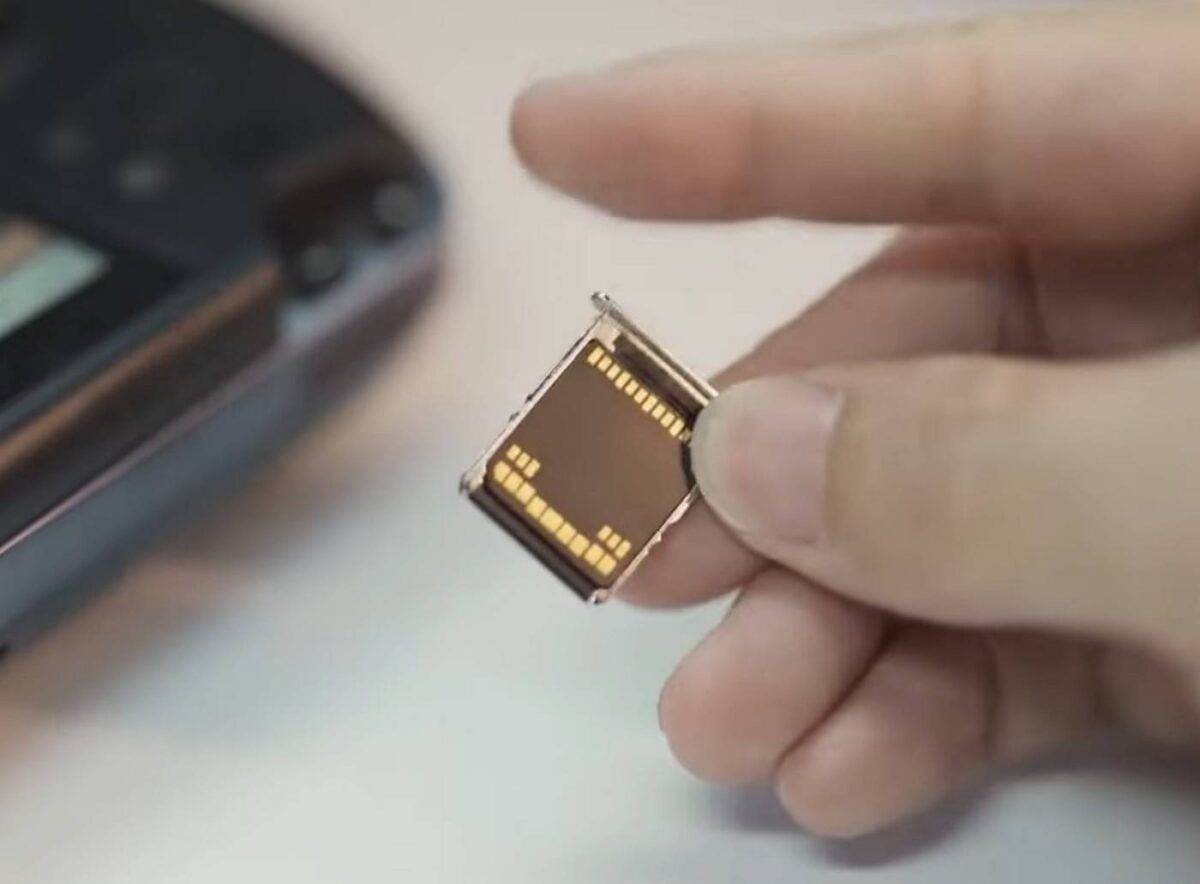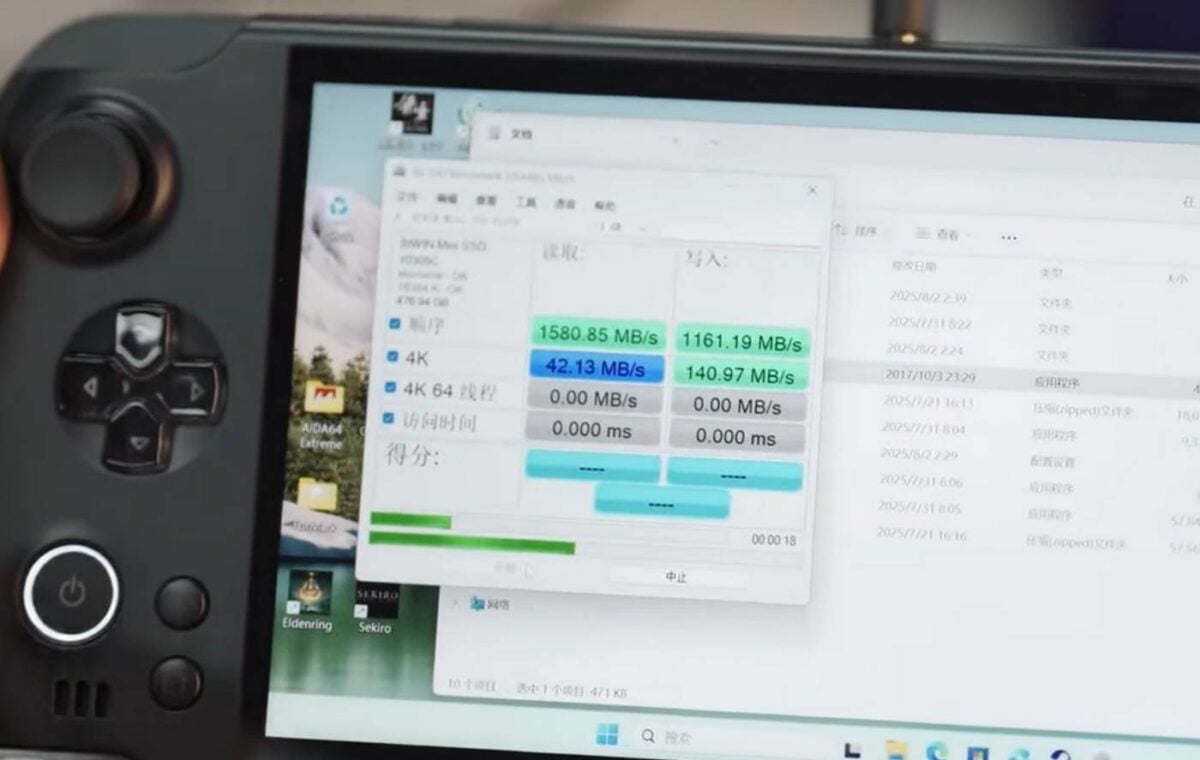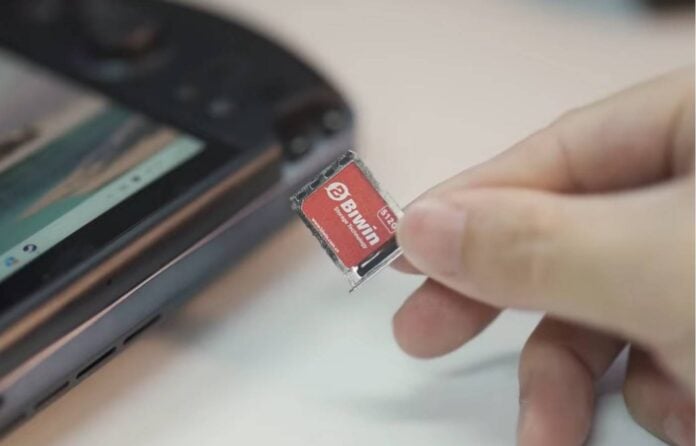Chinese brand Biwin has unveiled a new form factor that combines the strengths of PCIe NVMe storage and compact cards. The Biwin ‘Mini SSD’ is said to provide up to 3,700MB/s transfer speeds in a choice of 512GB, 1TB, and 2TB capacities. With its ultra-compact size, the Mini SSD aims to revolutionise the world of portable devices and gaming systems.
Unlike standard M.2 SSDs, which are fixed to the motherboard using screws or sockets, often requiring you to open the host machine, the Mini SSD comes in card format, making it easily swappable by all users. The ultra-compact upgrade measures just 15mm x 17mm x 1.4mm, making it perfect for gaming handhelds. For comparison, the SD card we’re all accustomed to measures 24mm x 32mm x ~2mm, while the smallest M.2 SSD comes in at 22mm x 80mm x ~2mm.

The Biwin Mini SSD uses 3D TLC NAND rated for 1.5 million hours MTBF alongside a PCIe 4.0 x2 interface communicating via the NVMe 1.4 protocol. Biwin claims it can reach a maximum of 3,700MB/s sequential read and 3,400MB/s sequential write, making it as fast as Gen 3 desktop SSDs or high-end SD Express cards. Impressive considering the form factor. For reference, microSD Express cards that are smaller still top out at around 985MB/s in the case of the Nintendo Switch 2.

Though the Mini SSD was first announced at Embedded World 2025 back in March, the drive has now been demonstrated in real-world action for the first time. Neighbouring Chinese manufacturer GPD showcased this tiny SSD on its compatible Win 5 gaming handheld, where it achieved 1,580MB read and 1,161MB write speeds.
While not reaching the speed promised by Biwin, it’s still plenty fast and a welcome upgrade for most handheld systems on the market. Bottlenecks are more likely to appear on the handheld side, where current hardware prevents the Biwin Mini SSD from delivering its full potential.
As far as I’m aware, Biwin is the only brand that has announced a Mini SSD of this sort, and it’s unclear whether this is a proprietary solution or an industry-wide standard. We hope for the latter since this design has great potential to improve the experience on upcoming handhelds, not to forget laptops and smartphones.
A wider reach and other manufacturers would also lower the entry point for such SSDs. Biwin has yet to share official pricing for these Mini SSDs, and retail availability also remains unknown, but this is a form factor we’ll be watching with interest.

